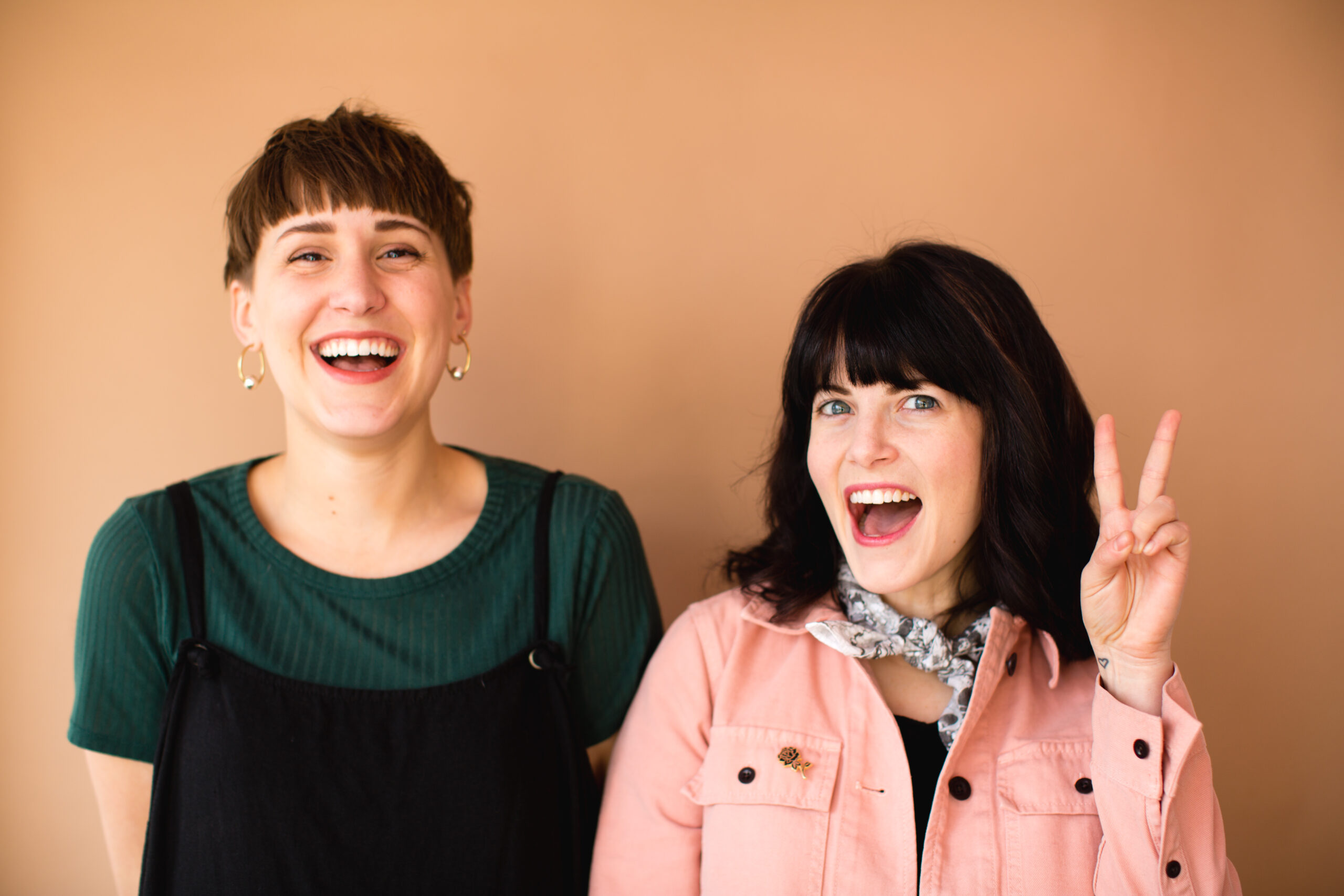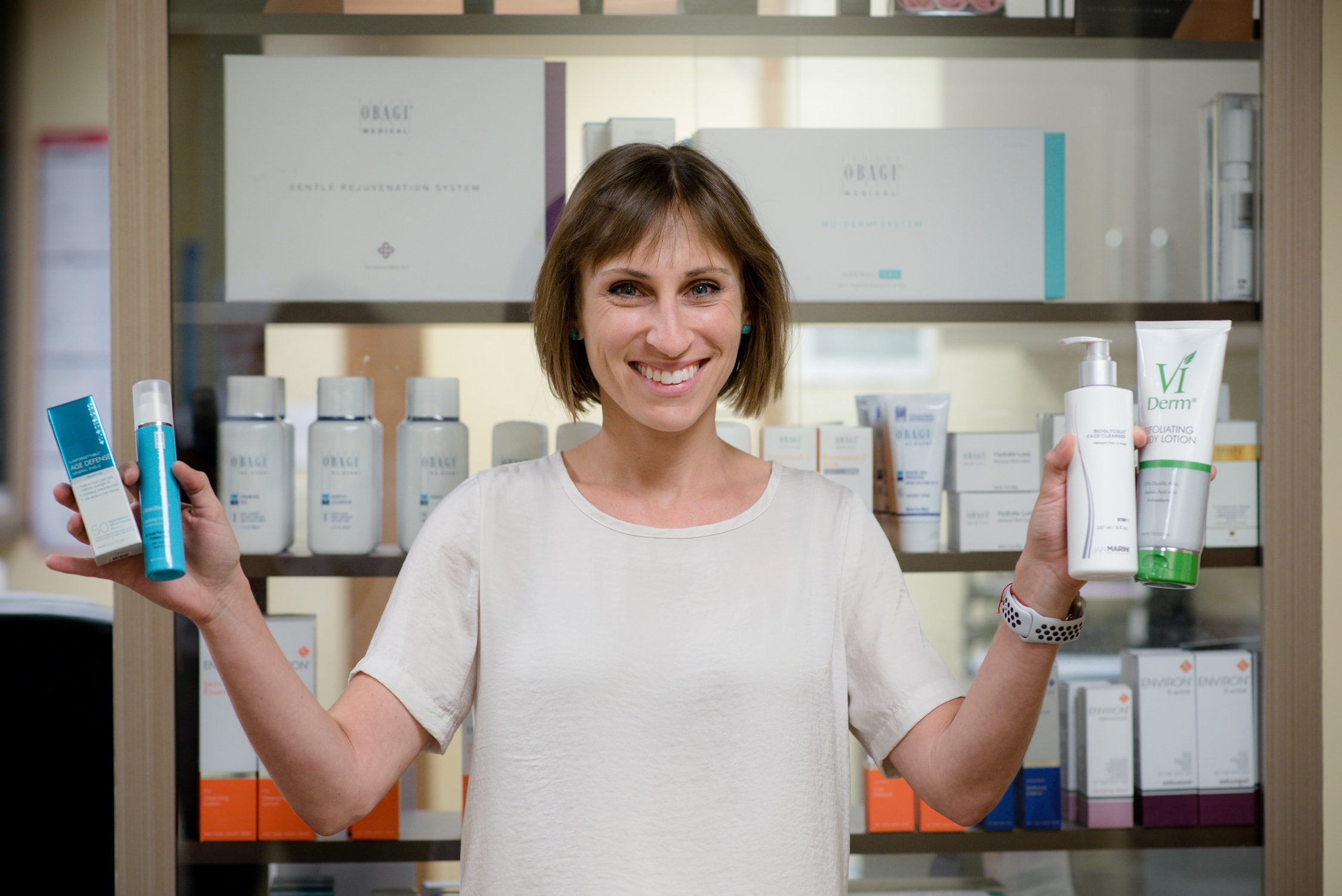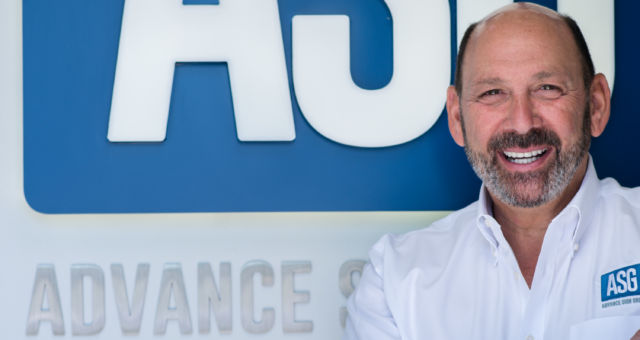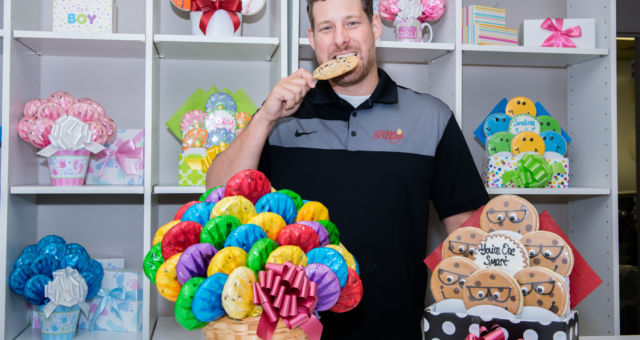What is your full name, title, and business name?
Kathleen aka “Katalina” Day, Owner & Founder, Katalina’s & Katalina’s, Too!
Follow Katalina’s on Social: Facebook | Twitter | Instagram | Pinterest
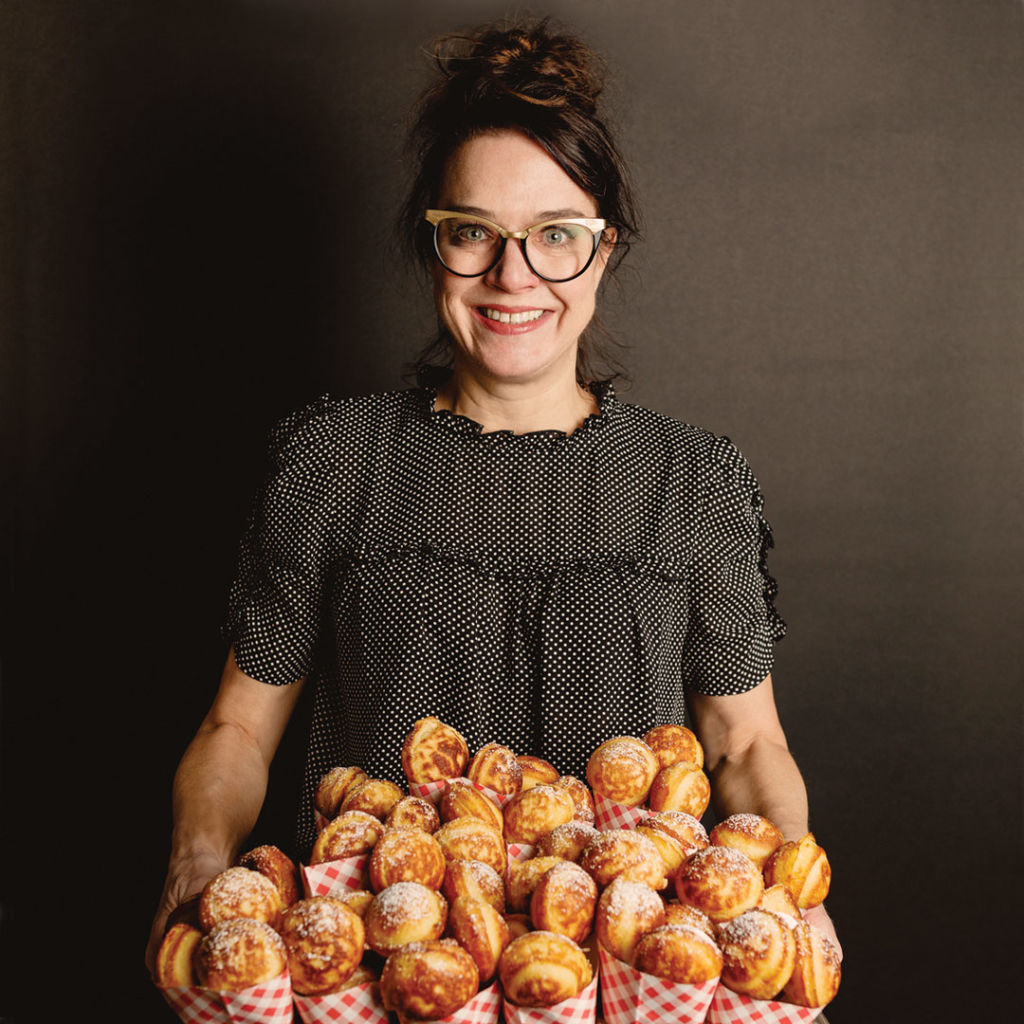
Give us a summary of your business in 200 words or less.
Katalina’s is The Little Cafe(s) with Lots of Local Goodness. Our first cafe was started ten years ago by our founder, Katalina, in the oldest gas station in Columbus. We strive to make the world better one little bite at a time with Peace, Love & Pancake Balls. We make scratch-made food with local, ethical and organic ingredients when price and practice permit and informs our motto Live, Love, Local, which makes our economy better, our environment better, and our city more attractive as a destination. Our food is Latin-leaning and Southern-slanted, a twist on tradition and a mishmash of flavors, just like our motley crew, which serves a clientele as diverse as the cultures that inform our menu. That diversity is what makes our cafe and food special. It contributes to the lines out our door and down the street (pre-pandemic!). We believe our customers are the heart of our business, but our employees are its soul. We pay a living wage, benefits, and paid time off to managers. We insist on a work-life balance for all of our crew because life is about more than work. Work is better when it’s informed by crewmembers’ passions and they can only be passionate when they have time for a life outside of work.
How did the idea for your business come about?
I had loved to cook since I was around nine years old, learning from Julia Childs’ recipes in Parade magazine. Between undergraduate and graduate school, I was an au pair in the French Alps for a family who owned a tiny bistro and was lucky enough to cook there. From there, I went on to cook for a Countess in Paris and then her mother-in-law, a Marquise, in Lyon. I continued to cater and wait tables to put myself through school when I got back to the States. On a whim, I moved to Seattle and got a job at one of the best restaurants in the U.S., The Pink Door (at the time, I didn’t realize how lucky I was). I dated a chef or two, and always knew I wanted to open a restaurant. I was just very naive about how to do it. After working at senior levels in the advertising and fashion industry, I moved to New Orleans and saw how the food industry really worked from the perspective of finally having some true business experience, so I started putting together a business plan. At first, it was, ironically, a Turkish tapas restaurant (because, much later, I would go on to meet and commit to a Turkish man!), but then, I realized that my life experience should inform my vision, so Southern food and the Latin influence that the Mission district, where I’d lived in San Francisco, really started informing my menu and plan. I had also worked with so many Mexican cooks at all the restaurants I had worked at. Finally, once I had the funding (and had finally had enough of my corporate jobs), it just all gelled.
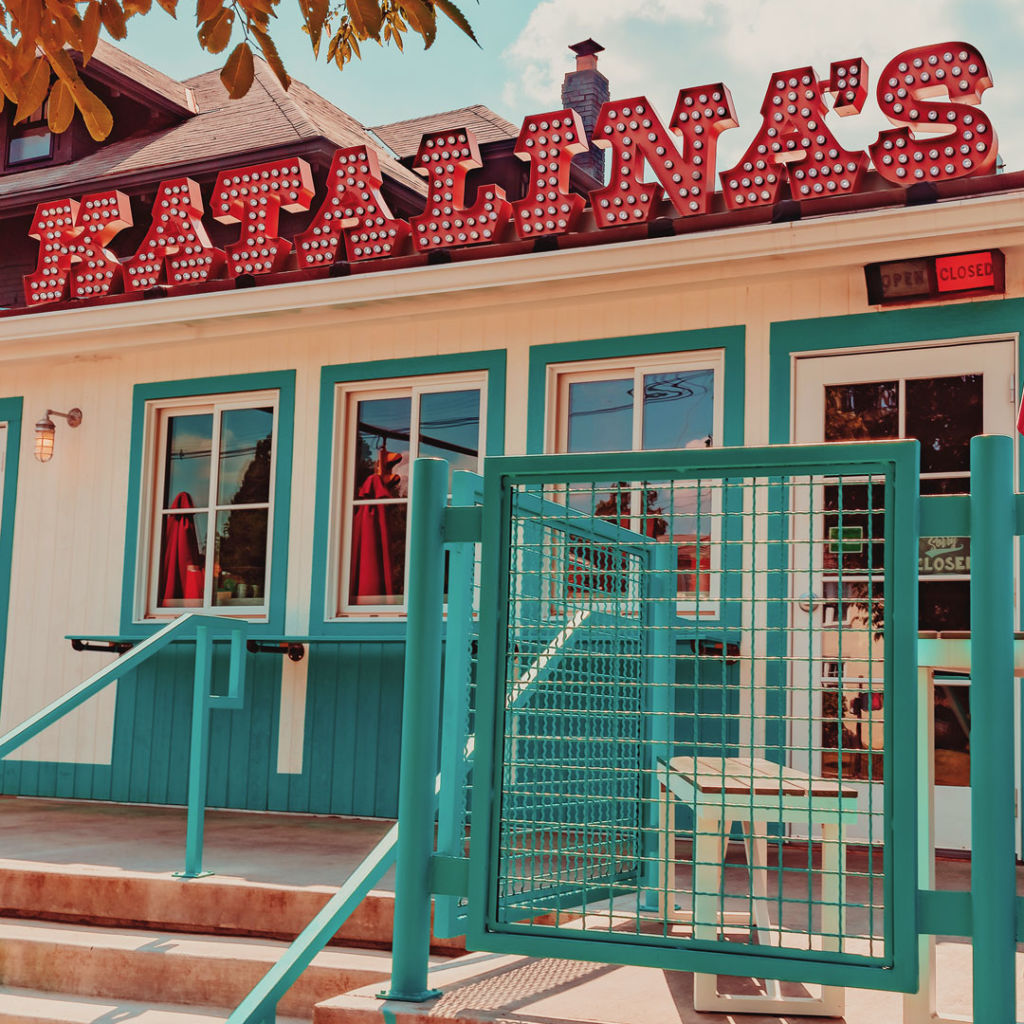
What was the turning point for your business? Was there a moment you knew you had something special?
I’ve told one story so much, that I’ll just touch on it. I also had been responsible for music playlists at two of the companies I’d worked for, and the White Stripes were one of my favorite bands. One day, Jack White showed up at Katalina’s when it was still in what I consider its “hole in the wall” stage. I had also been responsible for playlists at two of my former jobs, and the White Stripes were “it” for me. I was blown away. But from a practical standpoint, it was when my accountant told me I could finally take a salary near my former corporate salary. I had worried for so long that I wouldn’t make it like so many restaurants. That sounds like no big deal, but people don’t realize how small the profit margin is in the restaurant industry, especially when you don’t sell alcohol. Jeni Britton Bauer once gave me some good advice. She told me to pay my best people more than I pay myself. It’s not that simple, but, she was right. To grow and make a business viable in the long term, you have to go without paying yourself sometimes. Just hearing that I could finally pay myself well was such a big moment for me. I definitely celebrated.
What does it mean to you to be an entrepreneur and business owner?
Yes, it means a lot of work and more stress and sacrifice than I could have ever imagined. But it also means doing things on my own terms, which, hopefully, means giving back in ways that align with my mission and values, which are prioritizing local, organic, and humanely raised food. And treating employees who are traditionally undervalued in so many ways respectfully and with monetary and health and other benefits. All these things are why I get up in the morning, and I’ve had so many “consultants” tell me that I could make more money by cutting back on employee benefits; by not following the law to a “tee” (the restaurant industry is one of the least monitored and abused when it comes to worker pay, just as one example); by cutting back on food quality such as not preparing food from scratch, using fewer organic produce items or less humane meat. The list goes on. I not only believe that my customers–and employees–care, but I believe you can taste the difference. Sure, my food and labor costs are much higher than the average restaurant, and, sure, I might make more money if I didn’t adhere to these values, but would I be able to live with myself? Some people go to church. My “church” is my ethics and values and how I treat my employees and run my business. I’m not always sure everyone cares or sees what I do, but I know. To me, being my own boss means that I’m allowed to live my values, and, ultimately, I hope that makes the world a better place. How great is that?
What does the city of Columbus mean to your business?
Columbus supported Katalina’s from the start. Not only did Columbus support us, but it also embraced us. It took a chance on us in a way that enabled me to succeed when everything said I shouldn’t, in fact, succeed. I think that goes back to the last question. People care more than a lot of business “experts” might assume about making the world a better place. Columbus consumers are savvy enough to taste the difference in food that’s made from scratch and comes from a local farm or from a pig that’s raised humanely without being jacked up with hormones to keep it “healthy”. They may not always be able to articulate it, but they vote with their pocketbooks. And for a long time, it was assumed that Columbus was not sophisticated enough to pay just a bit more for the kind of food that you’d find on the coasts. Columbus consumers are Columbus-proud, and they loved and supported Katalina’s from the start because Katalina’s respected and cared that they had a taste, sophistication, and “lived, loved, local.”
Are you from Columbus? If not, please explain what brought you here and ultimately what made you stay.
I grew up in the South; then went to France (see above), lived on the West Coast for most of my former “career”; then moved to my second “home town” New Orleans where my mother lived (where I learned so much more about cooking and food), and then was recruited to Columbus for the final stint of my career before I opened Katalina’s. I have now been here for 15 years, longer than I lived even in my hometown in the South, so I consider Columbus home. I have “grown” so much since I’ve been here, just as I’ve seen Columbus go from a “small” big town to a sophisticated city beyond compare that I defend with a passion to any of my “big city” friends. I feel as if I struck gold when I was recruited here. I will never leave.
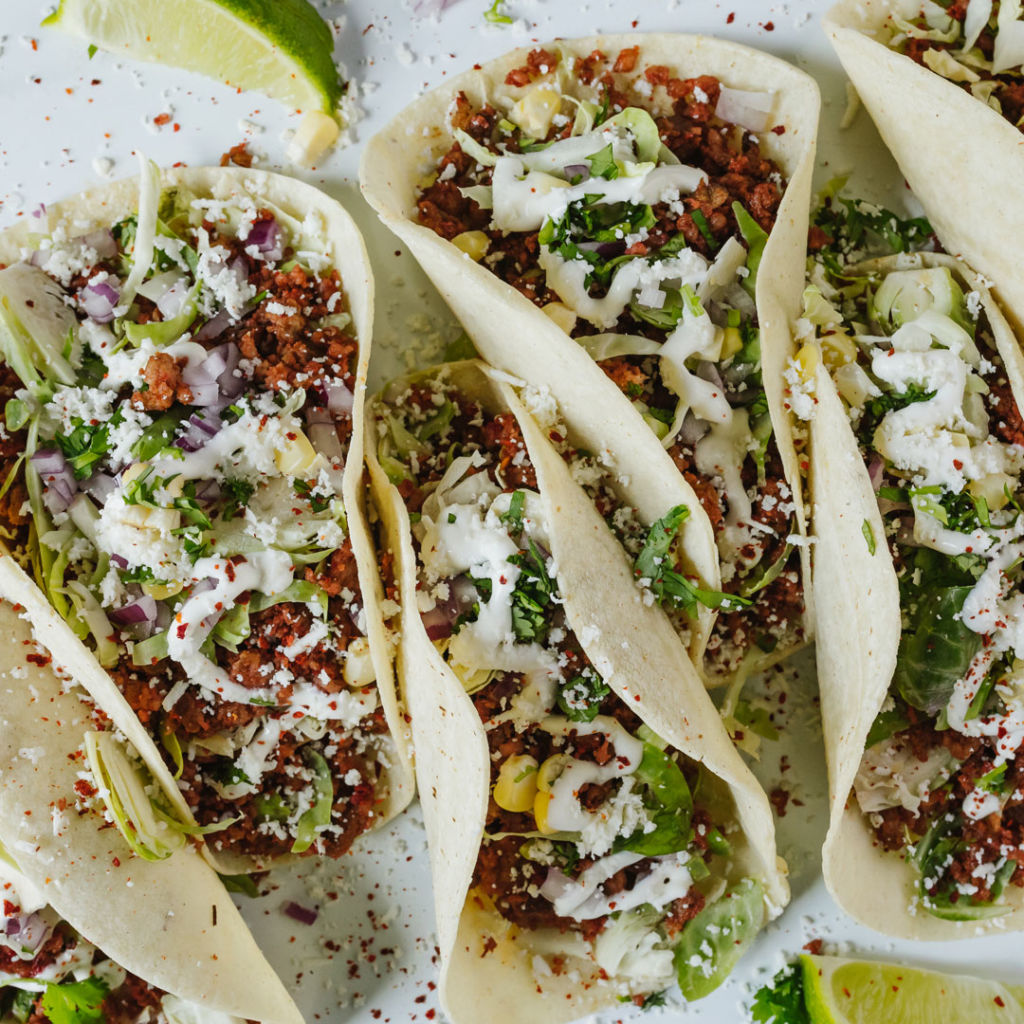 What’s the number one piece of advice you’d give to anyone wanting to start a business?
What’s the number one piece of advice you’d give to anyone wanting to start a business?
It’s going to be a lot harder than you think it will be no matter how hard you think it will be. Don’t take things personally because no one will ever care about it as much as you do. If you’re doing it for the money, it probably won’t work. Ironically, if you do it because you’re passionate about it, the money will come. Perfect is the enemy of good. Delegate, delegate, delegate, but also be willing to do anything you ask anyone else to do. (There is no number one piece of advice ; )
As an entrepreneur, how do you maintain a work-life balance?
As I mentioned previously, I hire for my “weaknesses” and consider myself a good delegator, so I’m able to delegate a lot of my work to people who make me and the company run like a well-oiled machine. I think a lot of entrepreneurs are afraid to do that because they feel as if their brand or product will lose its power or personality if it doesn’t have their personal “mark” on everything, but I find the opposite is true. For example, I’m a huge reader and cook, both of which inform my brand immensely. Many owner-operators might feel “guilty” for taking time every day to read before bed, but I consider it work and research, and I truly know that it informs so much of how I am “first to market” in so many ways. I wouldn’t be able to do these things if I didn’t “indulge” in a housecleaner, an incredible office manager who understands not only the brand but me personally so she’s able to get flowers, for example, for a business partner or employee if I need a last-minute “thank-you”. I also believe in combining work and life in ways like taking trips that inform my knowledge of food and culture and will inspire me and my brand, while also allowing me to unwind in ways that make Katalina’s even more unique and special. For example, whenever I travel, I make sure that the places I go to are off the beaten path but fit Katalina’s and our customer in every way. I get chills just thinking of the special places I’ve been and really localized myself in because I knew that the food, culture or setting was so entrenched in the “Katalina-cool” that my customer would taste it on his or her plate as if he or she were there before me. that’s the magic of travel. Being able to transport someone else through the magic of food, drink or the mystifying “surround sound” of a culture’s vibe that’s as visceral as a postcard and as magnetic as the mosaic of the memories that live on in our mind’s eye for a lifetime and beyond.
What do you wish you knew about entrepreneurship before starting your business?
I should have researched more. I have an MBA by default now, but I should have gotten one first, even if it was online. Also, I tend to be an “alpha” and pretty cynical woman. If you’re not, you better get tough quickly, depending on your industry. Entrepreneurship is not for the timid or naive. And people may take advantage of you the second they see weakness. And also, how much money it took to feel “secure” about everything that can go wrong.
What’s the most challenging part of your business (i.e, what keeps you up at night)?
Right now, it’s the pandemic. I used to think I could imagine every scenario. But obviously, no one could imagine this. Before this, it was worrying about something happening to my key people. Succession planning is very difficult for a smaller business. In a huge corporation, you have the luxury to have back-ups and operational structures in place so that if someone gets sick or leaves suddenly, there is a way to fill in the gap. I am more prepared than most companies my size I believe, which comes with financial costs, but it’s always something that you think about. People don’t realize how specialized and well-trained the people who make food at scratch restaurants are. These employees are undervalued by a lot of the public. What they do is extremely difficult and takes a lot of training and talent.
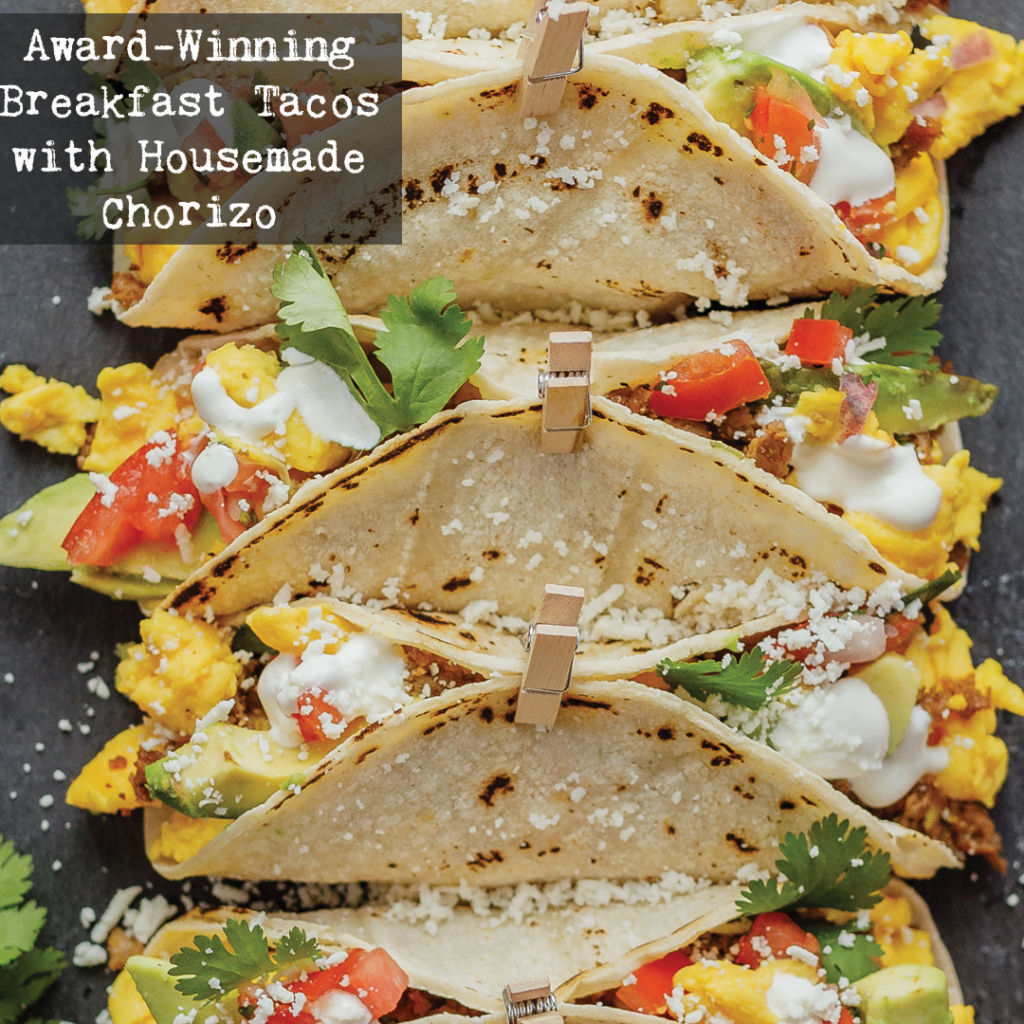
Every business owner has a flaw. What’s yours?
I lose my temper, especially with those I care most about. Like a lot of females, I get angry when I should be more appropriately assertive in my direction. I certainly take responsibility for that, but I do believe that society should take female authority more seriously and be more respectful of it, and it would go a long way toward alleviating this flaw that certain women in power have.
Do you face any challenges being a female entrepreneur? What are they and how do you overcome them?
I think that the way that women, especially assertive women (which most business owners have to be), express themselves when it comes to that “assertiveness” or even to a lesser extent, “self-assurance”, can seem so different and confrontational to both men and women, that it can be perceived as “crazy” or “different”, mostly because we have fewer role models of female assertiveness and authority. I have been fortunate that I am comfortable with my assertiveness and “style” when it comes to expressing myself in ways that men would merely be perceived of as being “authoritative” or “strong.” Sure, I had many men (and women) call me a “b**ch” and tell me things like, “you’re being seen as “b***hy” when a man would be perceived as “powerful” as they struggled to defend themselves when all I was doing was clarifying, asserting my justified authority, reassuring someone that I was right to, for example, push back on sexual harassment, or something else that was simply uncalled for. Being a strong woman in a man’s world (the restaurant world is definitely a man’s world) means always having to interrupt, assert yourself, “excuse” your behavior, prove that you’re twice as good, or even be extra nice to some people while being more assertive to others. I’ve done all this while having a life-threatening disease that makes people question my stamina even more, too. I’m so fortunate to have a partner that stands by me regardless of what people say or question. I certainly know there are many, many people, especially minorities who have it worse, but I do appreciate the question because not many people ask it of a white middle-class woman. But in the restaurant world, it’s especially relevant. I think being especially bold and having brains and an education that gave me the confidence to not care if people call me a b**ch is what helped me.
Why do you think most business owners fail? What has made you different?
I believe a lot of business owners try to do it all instead of hiring for their weaknesses. Women, especially, think that they should do everything. I know my weak areas and have no problem delegating and paying people who are better than I am to do what needs to be done. I love the expression “Penny-wise and pound foolish.” I see so many people trying to be frugal by saving a few pennies doing everything themselves but burning out, or, worse, not hiring experts like accountants or attorneys. That’s why it’s so important to have enough money in the beginning so you can, indeed, hire experts or hire for your weaknesses. Anyone who’s been to Katalina’s knows that it’s filled with thrift store finds and that I’m frugal with my interior, which is actually part of my brand look and feels. But if you look at my financials, you’d see that I probably spend more on experts and professionals than most businesses. I attribute that to my success because it frees me up to do what I’m best at and not burn out. I sometimes work a 10 or 12-hour day, but it’s rare. I think the business owners who do work such long hours are not able to do their best work.
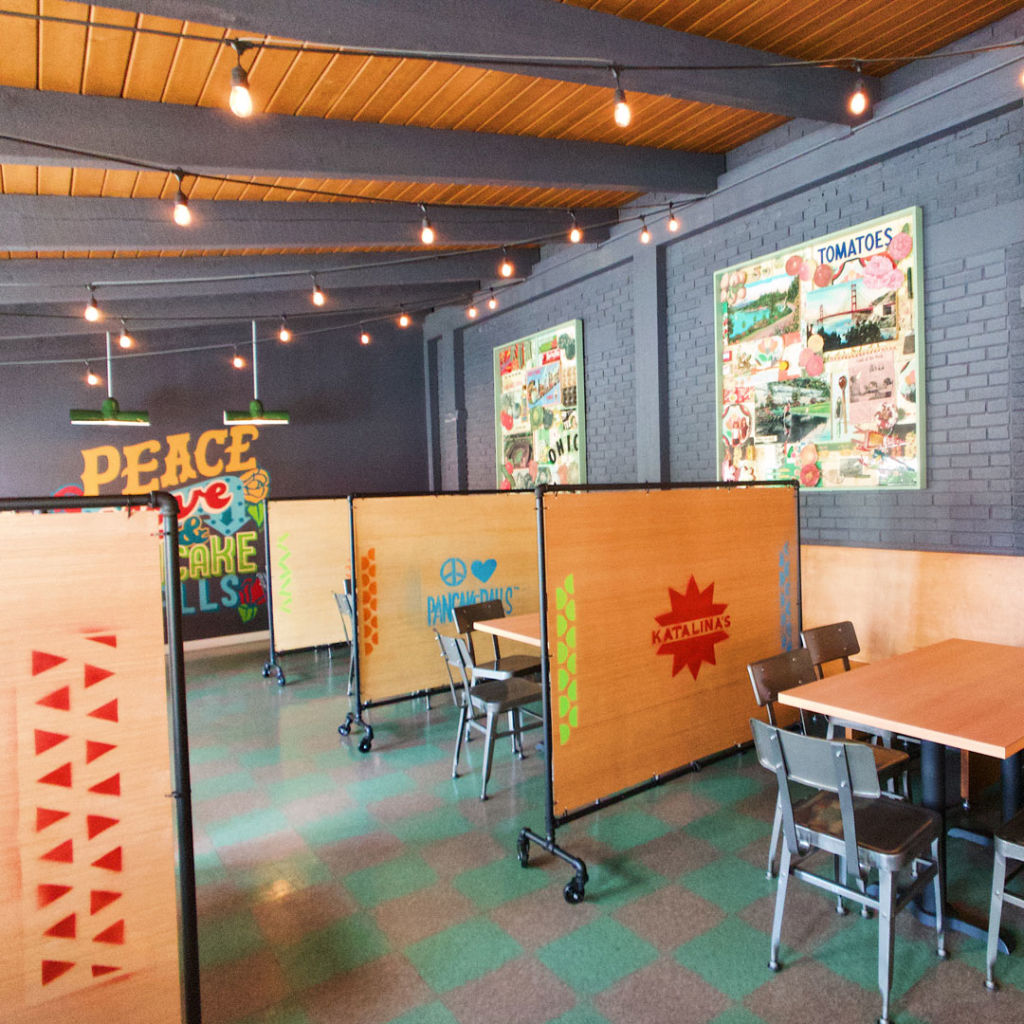
What was your biggest mistake and what did it cost you?
I’ve actually never told anyone this before. In the early days of the business, I had a life-threatening disease. One of my top people took advantage of the situation, and accused me of not being involved enough, when, for obvious reasons, he was doing as much (paid) work as I was. It got to the point that he told me that if I did not sell him the business, he would quit. Because I was so vulnerable, both physically and mentally, I was afraid to reach out to friends and loved ones for support and guidance. I felt that he might be right and that I might not be doing enough, not giving myself credit for investing so much money in the business, creating the brand, marketing, recipes, and concept; hiring all the business partners, etc. Looking back, it’s unbelievable that I would have doubted myself so much, but I was so sick. Thank goodness, I told him no and let him go. What it cost me was a friend of someone who contributed to the business, albeit in a small way. And also a lot of heartaches. I tell this because I am sure others have had similar situations. I’m sure he had no idea how much I had spent on the business, or how sick I was. But I was very close to selling the business. I can’t imagine if I had.
What tool has helped you the most for your business (invoicing, accounting, shipping, a plugin for a website, etc.)?
My people! I don’t want to say they are “tools” per se, but no app or “tool” can ever replace a tool. In fact, ironically, I find that the more apps and tools I use, the more my labor goes up. I may be old-fashioned, but we are going to get to a point where technology takes over everything. When I started ten years ago, technology was less than 1% of my business fees. Now it is so high that it eats into my profit in a way that a small business like mine cannot fight. I am an early adopter, but from POS to music to scheduling apps, they all are merging, expanding, etc., to a place where, just like delivery apps, they will take more and more of the consumer and restaurant food dollar that small restaurants like my own will either go out of business or have such a small profit margin that we will go back to the days of having only huge chains or small Mom & Pops that only have a cash drawer and the owner working the grill, the register, and serving.
When did you know it was time to expand your business, make your first hire, etc.?
I wanted to expand my business when I kept getting notes from customers asking for a second location.
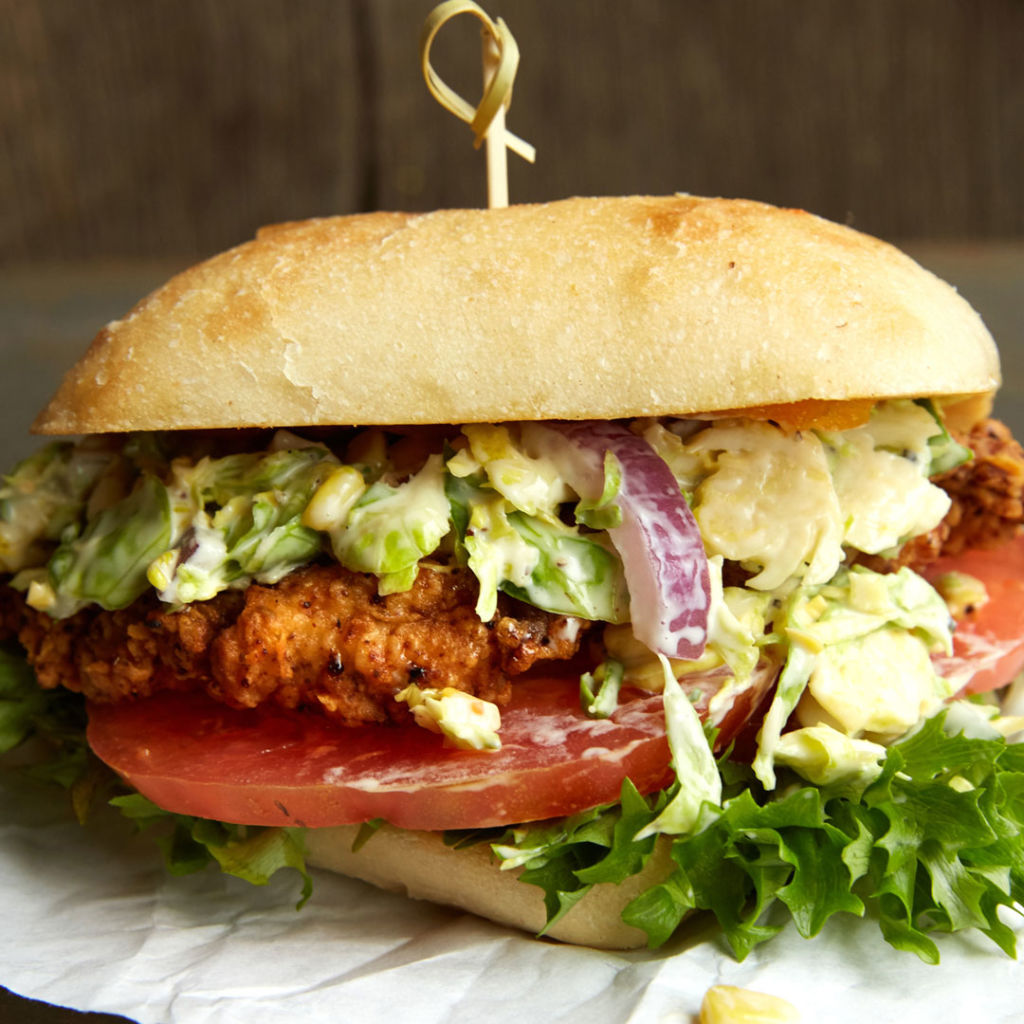
What is something that you did that was a game-changer for your business?
When I changed my menu in 2014, it really changed everything. I took a leap of faith to do what I really believed in instead of what the customer “claimed” they wanted, and from there, it really took off. I got a lot of push-back from some local bloggers, but national publications really supported me. I worked hard on doing some unconventional items that I really believed represented Katalina’s, and it really paid off. At the time, getting rid of hashbrowns for Elote Mexican street corn was pretty brave (it now seems so not a big deal!), but I’m glad I did. I think that menu, even though I’ve kept evolving it, really “put me on the map” as a “four-star menu in a diner atmosphere”.
What is something that your business spends a lot of money on that’s worth it?
My employee health benefits and Paid Time Off (for managers). I’m not required to do either one, but I believe it’s only fair and helps retain employees.
What is something you’re working on now that you’re very excited about?
I have a modified concept that I was about to launch before the pandemic, but had to stop for obvious reasons. Hope to get back to it soon.
What form of marketing is the most valuable for you?
That involves the customer and employees.
Who is your best Columbus resource (accountant, lawyer, marketer, etc.)? Please provide name and business name so we can give them credit!
Farwick Curran & Horgan LLC I’ve been with them since almost the beginning, and they support me through thick and thin, especially Ray Horgan.
Who do you vent to when you have a business problem?
My (romantic) partner, Chet. He also is the COO of the business. He is patient beyond belief and helps the business in ways it would take pages to express.
Where do you see your business in the next 10 years?
Depending on the state of the world (!), I hope to have at least five more locations of my modified concept here in Columbus. I would like to have a CEO so that I can step out of that role and step back into the creative role that allowed me to initially create Katalina’s. I would like for my top employees to be promoted to roles that best support the business and continue to grow our unique business model so that all our employees have careers that support their dreams and ambitions. I would love to see Katalina’s grow beyond Columbus to promote Peace, Love & Pancake Balls beyond our Columbus footprint and make the world better one little bite at a time!
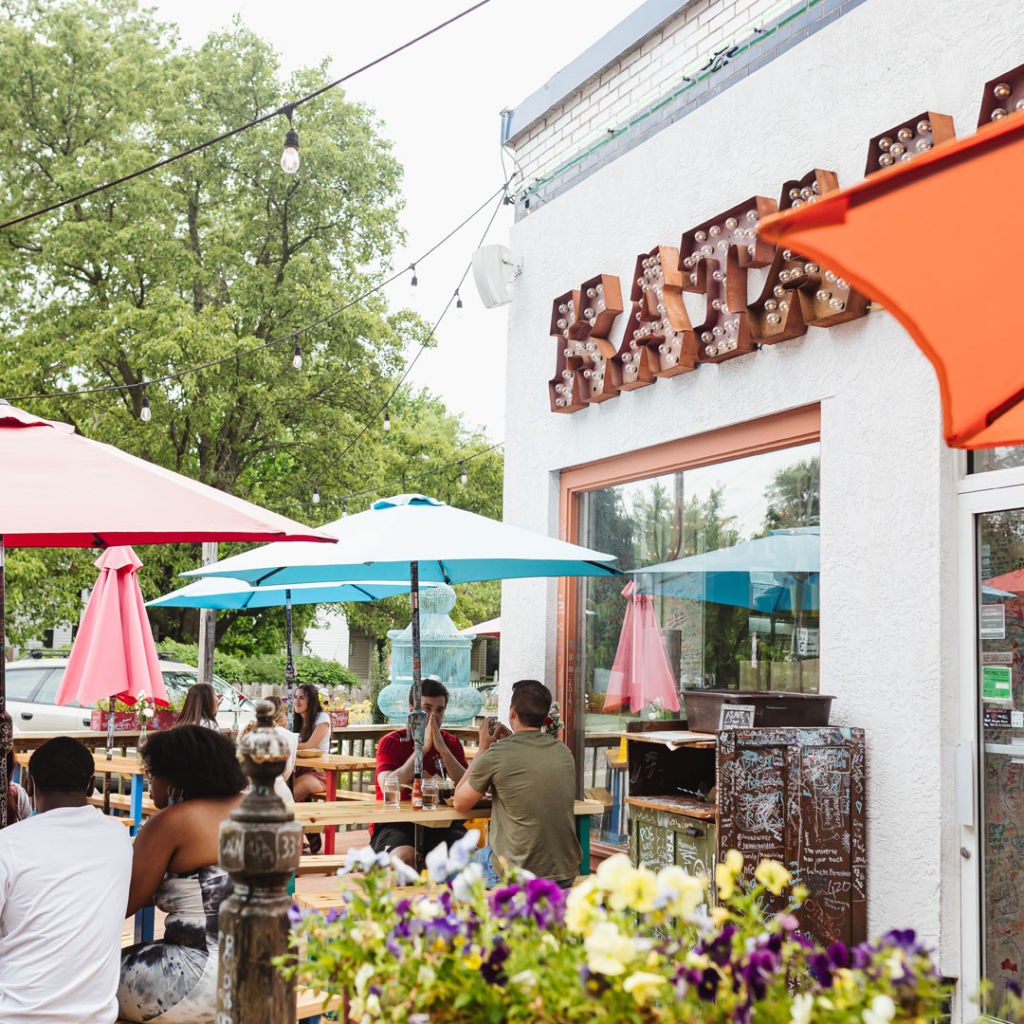
What was the single worst decision you made regarding your business and how’d you recover?
I don’t believe in bad decisions, only lessons.
When you’re stressed or overwhelmed, what do you do to overcome this feeling?
Meditate or read a good book. Or cook, cook, cook!
What habits helped make you successful?
Before I got my disease, it was running. I am slowly getting back into it. nothing is better than a good run. but cooking and listening to great music (cat power, anyone?) saves my tormented soul daily. And dancing while the sauce simmers…
What’s one component of entrepreneurship that’s much different than what most people think?
People and personality management.
What’s your end goal with the business? Is this something you want to pass down to your kids or would you like to eventually sell?
I would love for my niece, who is already creating recipes at 15, to take over. Otherwise, I would only sell to a company that is like-minded and would promote my values and continues my mission.
What other entrepreneur do you look up to most?
Bill Gates. He is using his wealth to impact the world for the better, perhaps more than anyone we’ve ever seen (and that’s tough for me to admit as a Mac girl! ; )
If you had to tell a visitor one thing to do/see/eat in Columbus, what would it be?
German Village. It’s so unique, and everyone works so hard to preserve architectural history. It’s the neighborhood that convinced me to move here.

